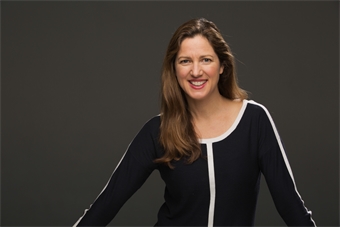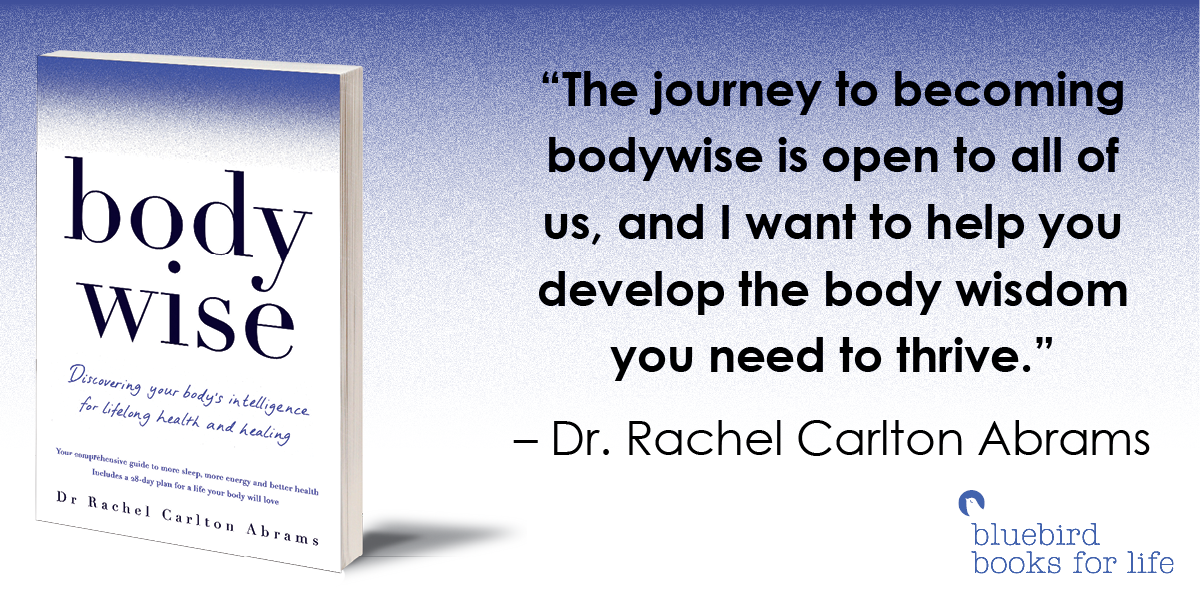Are you body wise?
In her landmark new book, BodyWise, introduced by our Wellness Director, Eminé Rushton, physician Rachel Carlton Abrams invites us to take a radical new approach to health by balancing traditional and integrative medicine with our intuition.

‘Around 15 years ago, in a room with Andrew Weil, the eminent doctor and healthcare expert (and Psychologies health columnist), I first heard the words ‘integrative health’ – and discovered how many of us are falling through the cracks in the traditional healthcare model,’ says Eminé Rushton.
‘Allopathic medicine – the basis of all Western medicine – treats the visible symptoms: it sees a rash and prescribes a steroid cream; it sees insomnia and administers sleeping pills. But, if you treat only the symptom, I learned, you never identify the root cause because you’re simply covering up the problem – a plaster over a wound that never fully heals.
Integrative health (which looks to other ancient systems of medicine, including Ayurveda and traditional Chinese medicine) focuses solely, wholly, on the root cause. The symptom is the signal, not the message.
There are myriad incredible, invested, wise and enlightened doctors, nurses and healthcare professionals operating in our amazing National Health Service – but our system is simply not built to best serve our extremely complex and deeply personal needs. There is neither the time nor the workforce to get to know all the ins and outs of everybody’s body, the unique meanderings of our minds, the profoundly sensitive spots that trigger pain, fear, anxiety and grief. That is for us to know, as Abrams explains in her empowering, illuminating and uplifting book, BodyWise (Bluebird Books For Life, £12.99).’
Body Wise: Dr. Rachel Carlton Abrams
For more than two decades, I have been a primary care physician. At least 75 per cent of my patients have the same constellation of complaints: they’re tired; they don’t sleep well; they’ve lost their sex drives. They may suffer from some kind of chronic pain, such as headaches, back pain, or pelvic pain; and they experience depression, anxiety, or both. And, often, they have allergies, autoimmune problems, or some other sign that their bodies are attacking themselves. They may not have all of these symptoms at once, but they often have most of them over time. I kept asking myself why so many women have some, or all, of these symptoms. Could it really be just coincidence? Might the symptoms be connected? Was there a way to address them all together?

Super-tired superwoman
Over and over, women talk to me about the same life challenges. They feel pulled in multiple directions by their many roles and responsibilities. They are torn between taking care of their families and friends, and work. They are overwhelmed and exhausted by the blessing, and burden, of their commitments. They answer society’s call to be ‘superwomen’ yet, regardless of age and life stage, so many women are depleted by their lives. They are perceptive about their busy worlds, but they lack deep intelligence about their most important instrument – their bodies. GP colleagues see a similar epidemic of symptoms. This set of complaints is so common, I have come to see it as not just a random collection of symptoms, but as its own diagnosis: chronic body depletion.
Chronic body depletion occurs because of the demands that modern life puts on our bodies, and because we have lost touch with our bodies’ intelligence. Many women have come to accept extraordinary levels of pain and discomfort as normal, not realising that their bodies are literally screaming at them to pay attention before more serious disease occurs. Yet, listening to your body is not just about avoiding future illness, it is about wellness and vitality now, and about being able to have the life you – and your body – will love. I’ve come to see a person’s body intelligence – your body quotient, or BQ – as a fundamental measure of your health and wellbeing.
I’ve learned that listening to my body is the fastest way to get the life I want. When I was on call, working 100 hours a week while pregnant with twin girls, there was barely time to urinate or eat – in a system, ironically, that did not honour the health of the very practitioners who were trying to heal people. Not surprisingly, I almost had a premature labour and ended up on bed rest for three months. Of course, I wanted to do everything I could to protect my daughters’ health, and my body demanded the rest that I had not been giving it.
We’re all born with a knowledge of our body and its needs. Yet, we live in a world that is far removed from our basic physical requirements. We can sit at a computer barely speaking or moving for an entire day. We rarely grow or gather our food; and, with frozen meals and deliveries, we don’t even need to cook it. We can take something to help us stay awake all night, and something else to sleep during the day. We can ignore our bodies’ needs or signals and still survive. Yet, 80 per cent of diseases – heart disease, high cholesterol, diabetes and many cancers – are worsened, or caused, by lifestyle. Our lack of body wisdom makes us sick as a society, and as individuals.
Listen when your body speaks
I am passionate about helping women to become body wise because I think it is the most powerful, revolutionary way to heal not just ourselves, but our society. When we honour ourselves and our health, we end up healing our families, organisations, and even our relationship to the earth. When you understand your body’s language, difficult decisions become simpler. Eating becomes more of a pleasure, as you understand what your body really wants. A new level of energy and inspiration is possible when you move, eat and rest in the way that your body needs. You develop a ‘second sense’
for choosing people who are positive influences. You are less likely to become ill, as you listen to the early symptoms that your body is communicating to you. If you want joy, vitality and longevity, begin listening to your natural body wisdom and move from depletion to repletion.
How to be body wise
We develop body intelligence at four levels. I think of it as gathering information about our wellbeing from the outside in. First, we gather measurements of our health using data we can collect, often through diagnostic tests or devices. Second, we pay attention to sensations in our bodies. Third, we track emotions associated with those sensations. Fourth, we try to discern patterns of experience that help us understand what we sense and feel. Think of the fourth level of discernment as the detective level, combining all the information, and using these clues to lead us to broader insights about our health and wellbeing.
Rachel Carlton Abrams chairs the committee for the Academy of Integrative Health and Medicine, and has medical degrees from Stanford, UC San Francisco and Berkeley.

Photograph: Stocksy








